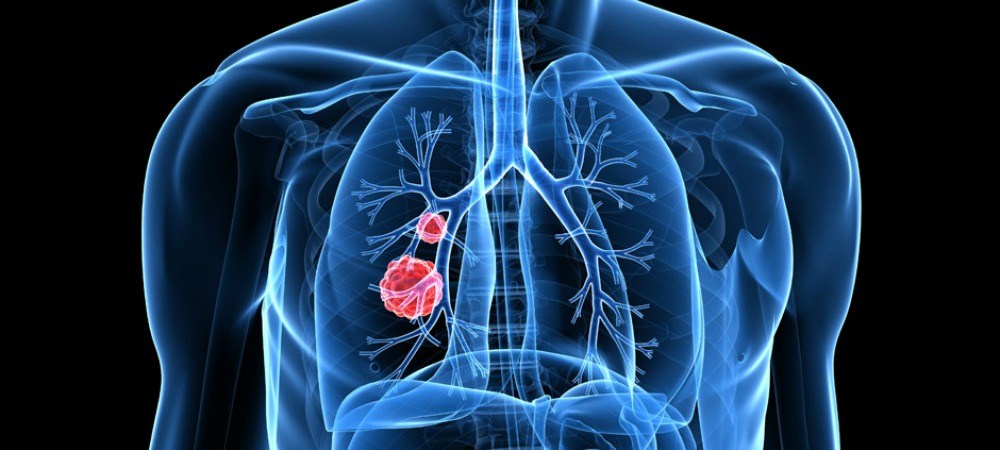Spotlight on: Lung Cancer Treatments
A look at novel lung cancer treatments currently available, or in development, which promise to revolutionise the future of lung cancer.

Each year, over 45,000 new cases of lung cancer are diagnosed in the UK, making this the third most common cancer after that of the breast and prostate.
As successful treatment statistics remain disappointing – finding the most appropriate lung cancer treatment may be crucial to achieving the best possible outcome.
The latest available guidance by the National Institutes for Health and Care Excellence (NICE) recommends surgery, chemotherapy and radiotherapy, used alone or in combination depending on cancer type (non-small or small cell lung cancer) and other factors.
But these are far from being the only options.
Following is an overview of pioneering lung cancer treatments provided in hospitals and clinics or, where indicated, clinical trials.
As with any new treatment, side effects and long-term efficacy have not yet been fully established.
However, the evidence to date supports their use, in some patients, mainly as a way of complementing or enhancing standard interventions.

Radiofrequency Ablation (RFA)
Involving the destruction of cancer cells through radio wave-generated heat, this is a “promising treatment for small size NSCLC [non-small cell lung cancer] in nonsurgical candidates,” says Professor Thiery de Baere, head of the image-guided therapy department of the Gustave Roussy Institute of Oncology, France.
Photodynamic Therapy (PDT)
This technique uses laser light beamed through the tumour from a tiny tube placed inside the body.
It has been used successfully in clinical trials, in combination with surgery, to ensure the complete removal of lung cancer tissue.
Findings presented at the Chest Annual Meeting 2016, held in Los Angeles, suggest PDT works also for a less common form of lung cancer called carcinoid tumour, when surgical resection is not possible.
Cryosurgery
Lung cancer tissue can be shrunk by freezing it with a small probe that generates very low temperatures.
In a new study in the Journal of Thoracic Oncology this procedure, called cryosurgery, destroyed up to 90 per cent of cancerous tissue in advanced NSCLC patients.
However, the study authors say more research “should be conducted to evaluate [associated] long-term result[s] and survival rate[s].”

Biological Therapy
In biological therapy, medicines are used to disrupt the mechanisms that allow cancer cells to grow.
Some of these medicines, including erlotinib and gefitinib, are currently available and recommended by NICE for certain lung cancer types.
Prices per pill are around £13 for erlotinib, and £6 to £20 for gefitinib, although some patients may be able to have erlotinib on the NHS.
Immunotherapy
Treatments that stimulate the immune system to fight cancerous cells are known as immunotherapies, and are particularly promising.
The New England Journal of Medicine reports that advanced lung cancer patients on the immunotherapy drug nivolumab lived up to 19.4 months, from treatment initiation, compared with an average of 9.4 months for those who received standard chemotherapy.
Following these results, nivolumab was approved in the UK in 2015. It is for patients whose lung cancer has progressed despite chemotherapy, but is not on the NHS.
Combined Cell-gene Therapy
Developed by researchers at University College London (UCL), this novel therapy involves transplanting patients with donor bone marrow stem cells genetically modified to contain an anti-cancer gene called TRAIL.
In a study in Expert Opinion on Biological Therapy, the UCL team found that the technique, which is being trialled for the first time in humans in the UK, has the advantage of “delivering treatment direct to tumor site… [and] may overcome some cancer cell resistance.”
CRISPR/Case9 gene editing
Another cutting-edge treatment for lung cancer is being tested in a clinical trial by Sichuan University in Chengdu, China, which is currently recruiting participants.
Using a technique called CRISPR–Cas9, immune cells from a patient’s blood are stripped of a gene that codes for the protein PD-1, which inactivates the immune system.
The cells are then reinjected into the patient where, free from PD-1, are no longer prevented from attacking the cancer.
Lung-MAP Precision Medicine
This technique promises to significantly advance personalised medicine.
Patients are tested for mutations in cancer-related genes, and given medications that target those mutations, increasing the chance of positive outcomes.
A US team led by Roy Herbst, of Yale School of Medicine, is using this approach in a ground breaking study of patients with advanced squamous cell lung cancer.
Herbst says: “Lung-MAP is a new model for high-quality drug development in less time at less cost and, most importantly, to improve the lives of patients.”
LUNG CANCER SECOND OPINION
Get Access To New Treatments and World Leading Lung Cancer Doctors
Our cancer second opinion service helps you get access to cutting edge treatment and world leading doctors.
Creatives designed by freepic.com




